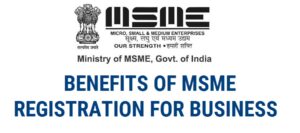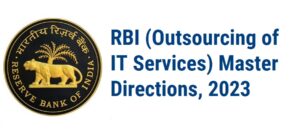Page Contents
- How to Understand Intellectual Property Rights in Employment?
- What falls under Intellectual Property Rights?
- Ownership of IPR in Employment
- Understanding Intellectual Property Rights in Employment: Key Factors and Agreements
- Key Factors to Decide Ownership in IPR
- Agreements to Execute Between Employer and Employee to Avoid Disputes
- Conclusion
How to Understand Intellectual Property Rights in Employment?
Intellectual Property is any creative work or invention of the mind and it belongs to the person who created it unless it is stated otherwise in a predetermined contract. In the case of employment, the employer may own or have assigned rights over the intellectual property that an employee creates during the employment period, if his signed employment contract says so. But, the employee still has original rights over the work they created and can claim them later after leaving the company which may lead to confusion and potential dispute. Therefore, it is essential to include terms related to the ownership of intellectual property in employment contracts, independent contractor agreements, or consultant and designer agreements.
What falls under Intellectual Property Rights?
Intellectual property includes inventions, designs, literary and artistic works, trademarks (symbols, and images) used in commerce. There are nine categories of intellectual property such as copyrights, trademarks, patents, designs, geographical indications, trade secrets, and more. Some key attributes of IPRs are that they are intangible assets, creations of the mind, and entail negative rights which means the owner can exclude others from using their property.
Under the employment scene, the most common IPRs are industrial designs, copyrights, trademarks, inventions and patents, trade secrets, and more. Protection of intellectual property is crucial, as employees have access to the business’s internal and pre-existing codes, models, and systems. Employees can leak or steal data and share it with competitors. Therefore, it is essential to protect IPRs from being stolen or leaked from the company.
Ownership of IPR in Employment
As per common practice and industry standards, the employer owns the intellectual property an employee creates during their employment, since the employer invests in the employee in terms of salary and providing infrastructure and basic resources which enables the employee to create such work product and IP. However, no blanket rights are granted to employers, and there are some factors to consider while resolving any dispute related to the ownership of intellectual property rights in employment.
Ordinarily, the employment agreement signed by the employee at the time of agreeing to work with the employer will detail out the IP rights and which party will retain ownership in the work product consisting of such IP and for how long. Including clauses about confidentiality in employment contracts or commercial relationships between the parties can also help to protect intellectual property. If there is no pre-existing agreement defining terms of ownership of IPR between employee and the employer, the employee can assign his rights in the IP by executing an assignment deed at a subsequent stage in favour of the employer, based on mutual understanding.
By including clear clauses in employment contracts or other written agreements, employers can define title to seek protect their IPRs and prevent any legal disputes regarding ownership.
Understanding Intellectual Property Rights in Employment: Key Factors and Agreements
In India, the ownership of Intellectual Property (IP) rights can vary under different IP laws. Copyright law states that the creator or author is the first owner of copyright, and patents law says that the inventor is the first owner. The Designs Act, 2000, mandates a procedure for the assignment of designs similar to patent assignments. Trademarks are the property of the registered proprietor. However, there is no current domestic legislation protecting trade secrets or confidential information. Hence, disputes may arise between employers and employees regarding ownership rights, which can be resolved by including clear terms in employment contracts for how employee-developed IP will be dealt with.
Key Factors to Decide Ownership in IPR
Statutory Provisions – The ownership rights of IP will be decided according to clear legal provisions specified in law.
Contract of Service – The employer must pay salary to the employee for work done under a contract of service, and the employer can claim the ownership of IP if provided in the employment contract.
Agreement for IP Ownership – An intellectual property assignment agreement between the employer and employee specifies the ownership of IP in different situations. This agreement solves the ownership issue with respect to the IP created during the employment, especially if terms of ownership are not contemplated in the employment agreement itself.
Nature of Work – If there is no statutory provision, the nature of work that the employee is engaged in can decide the ownership of the IP created during the employment. If any IP is created by the employee in connection with work profile and part of his day-to-day functions, then it belongs to the employer unless there is a contrary contractual understanding.
Agreements to Execute Between Employer and Employee to Avoid Disputes
Employment Agreement
It is recommended to execute a detailed and exhaustive employment agreement at the time of hiring an employee that mentions the ownership of IP generated during the course of employment. Confidentiality and Intellectual Property Assignment clauses, and governing law clauses can be included.
Intellectual Property Assignment Agreement
If the employer wants to acquire the IP created by an employee that does not fall under the employee’s nature of work and IP that doesn’t get owned by the employer automatically, an IP Assignment Agreement can be executed subsequently with proper terms and conditions.
Conclusion
Employers need to protect their IP, but they cannot always be the deemed owner of IP created by an employee during the employment. With proper contracts between the employer and the employee, the risks associated with the ownership of IP can be mitigated. To avoid disputes, terms and conditions of ownership of IP created during the employment must be executed on paper, and a lawyer can help dilute the prospective risk of tussles for ownership rights.
Looking for expert contract advice? Call us at +91 9930156000 today
Disclaimer – The content of this document is for information purpose only and does not constitute advice or a legal opinion. It is based upon relevant law and/or facts available at that point of time and prepared with due accuracy & reliability. Readers are requested to check and refer to relevant provisions of statute, latest judicial pronouncements, circulars, clarifications etc. before acting on the basis of this write up. The possibility of other views on the subject matter cannot be ruled out. By the use of the said information, you agree that the Treelife is not responsible or liable in any manner for the authenticity, accuracy, completeness, errors or any kind of omissions in this piece of information for any action taken thereof.









